Since 2014, MMFS has been running a trip to the American South to visit some of the monuments, museums, and historic markers and sites of the Civil Rights movement. Last week, 45 MMFS students, parents, grandparents, teachers, administrators, and friends embarked on this Civil Rights Journey, a four-day trip to Montgomery, Selma, Birmingham, and Atlanta.
Our first stop was Montgomery’s Rosa Parks Museum, situated at the very spot where Rosa Parks refused to move to the back of the bus. The museum honors her legacy and also emphasizes the important role women played in the Civil Rights movement. One of the exhibits is an interactive, visual experience of December 1, 1955, the day of Rosa Parks’s arrest. The museum also emphasizes the role that 26-year-old Dr. Martin Luther King, Jr played in the Montgomery Bus Boycott.
Our next stop was the Dexter Avenue King Memorial Baptist Church, where Dr. King served as pastor from 1954 to 1960, and which was the site of meetings to organize the Montgomery Bus Boycott.
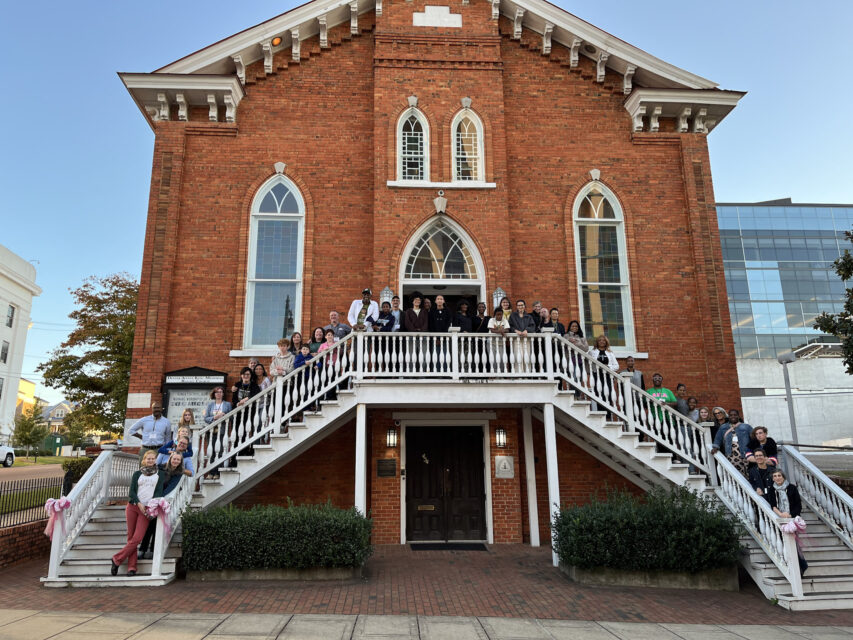
The next day we visited the Equal Justice Initiative’s Legacy Museum, exploring the evolution of racial oppression over 400 years of American history, from enslavement to the era of Jim Crow, racial terror lynchings, and mass incarceration. The museum visit ended in the soaring Reflection Space and art gallery.
Next we had lunch at the famous Martha’s Place restaurant, where we met Martha and heard her story and how her faith has sustained her through her struggles and great success. For many of us, this was the best meal of the trip! (“Miss Martha has the best banana pudding I’ve had in years!” — André)
In the afternoon, we headed to the deeply powerful and moving National Memorial for Peace and Justice, “dedicated to the legacy of Black Americans who were enslaved, terrorized by lynching, humiliated by racial segregation, and presumed guilty and dangerous.” We then spent time exploring the contemporary artworks, first-person narratives, and historical artifacts in EJI’s Freedom Monument Sculpture Park.
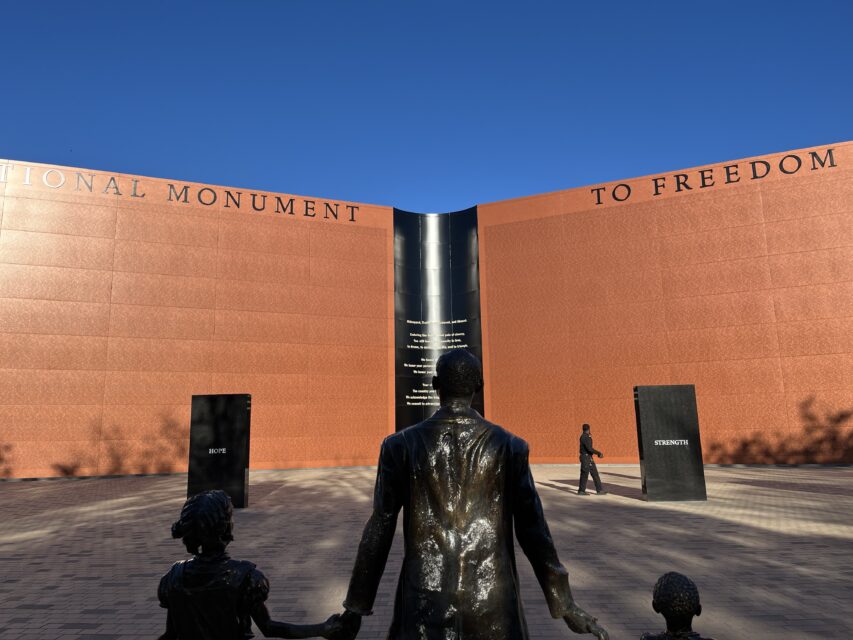
From there we headed to the Southern Poverty Law Center to see the Civil Rights Memorial designed by Maya Lin (who also designed the Vietnam Veterans Memorial in Washington, DC). It’s a stunning black granite sculpture with water flowing across a timeline of the major events of the Civil Rights movement and the names of people who were killed during the struggle. A 40-foot-long curved, black granite wall is inscribed with words that Dr. Martin Luther King, Jr. used in his “I Have a Dream” speech: “…Until justice rolls down like waters and righteousness like a mighty stream.”
Over dinner that evening, our guide for many years of MMFS Civil Rights trips, Billy Planer, introduced us to Alabama State Representative Phillip Ensler, who spoke with us about the politics of the South, now and in the future.
The next day, we headed to Selma and met with Lynda Blackmon Lowery, who at 14 was the youngest person to march on Bloody Sunday, the day when 600 people attempted to cross the Edmund Pettus Bridge in support of voting rights, only to be brutally attacked and turned back by lawmakers with billy clubs, whips, and tear gas. Ms. Lynda recounted how she was near the front of the march when she was confronted by Alabama State Troopers on horseback. She was beaten and ended up with seven stitches over her eye and 28 stitches in the back of the head. This vicious attack on civil rights marchers was seen on television across the nation, prompting outrage and support for civil rights and voting rights. Ms. Lynda turned 15 when she participated in a subsequent march that proceeded all the way from Selma to Montgomery.
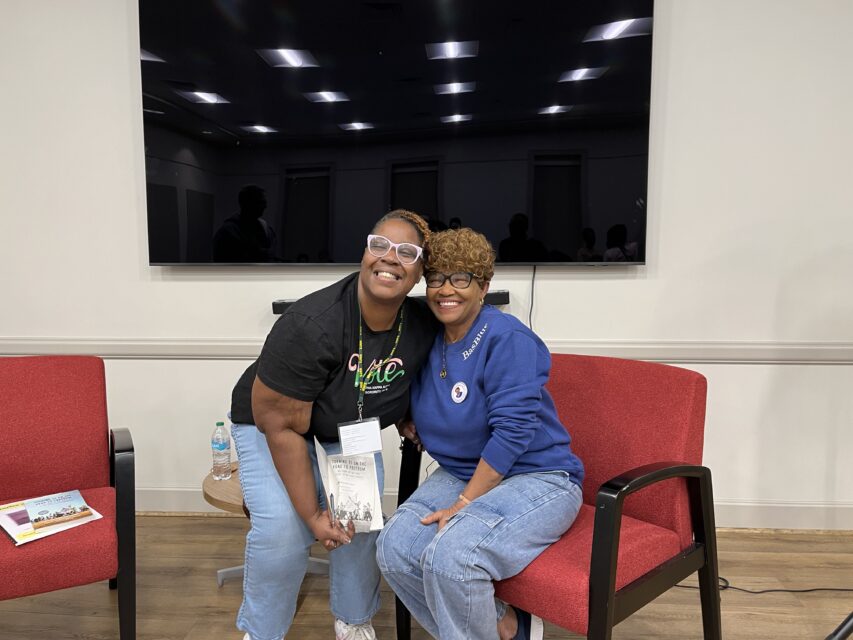
After meeting Ms. Lynda, the MMFS group took the walk across the Edmund Pettus Bridge. The experience of walking in the footsteps of those brave civil rights activists was powerful.
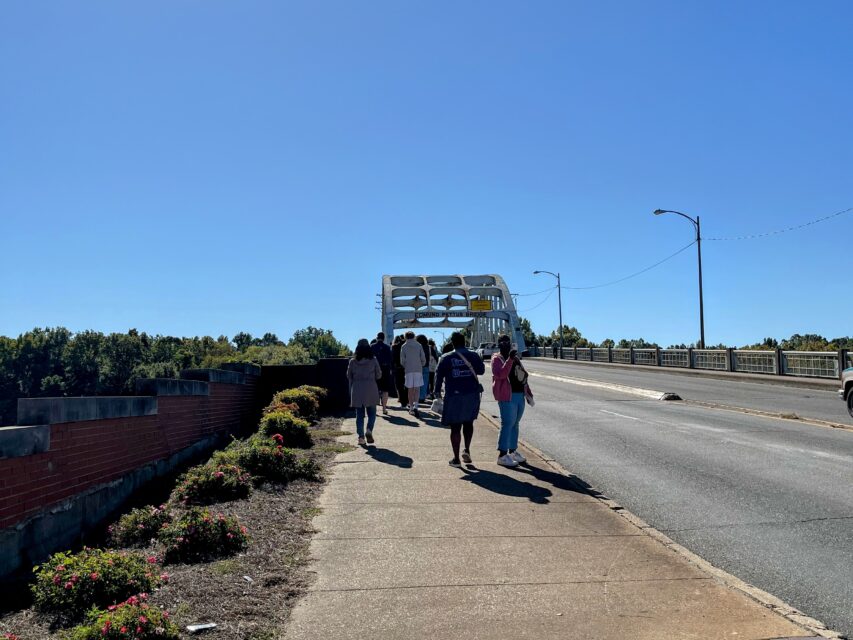
Next we headed to Birmingham for a tour of the Sixteenth Street Baptist Church, where in 1963 four little girls—Addie Mae Collins, Denise McNair, Carole Robertson, and Cynthia Wesley—were killed by a bomb placed by the Ku Klux Klan as they were getting ready for Sunday School. In Birmingham, we met with Rev. Calvin Woods, who shared his experiences participating in the student marches and working with Rev. Fred Shuttlesworth and as a special assistant to Dr. King. At 91 years old, Rev. Woods held our attention as he told his story and led the group in singing “This Little Light of Mine” and “We Shall Overcome.”
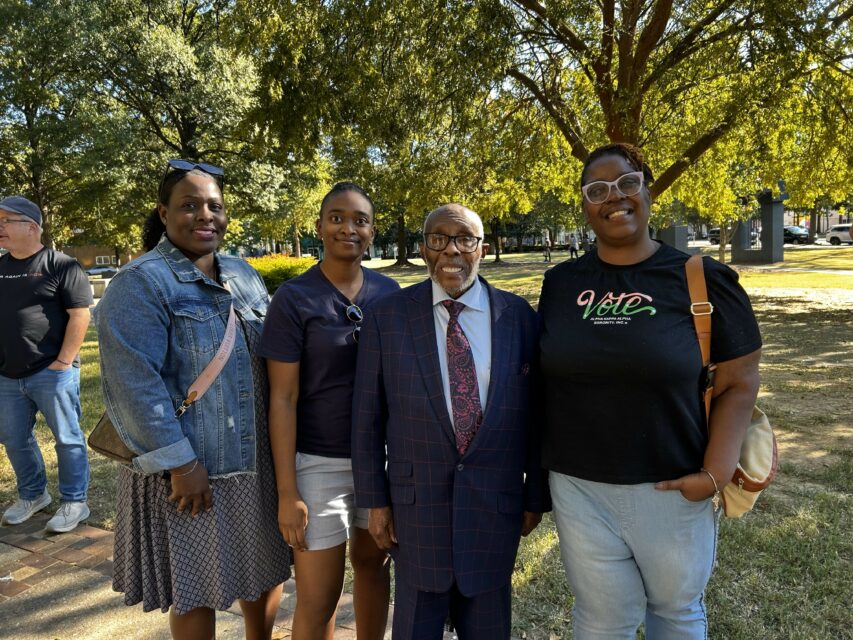
On the final day of the trip, we attended a worship service at Ebenezer Baptist Church in Atlanta, where Martin Luther King, Jr. was a co-pastor with his father, Rev. Martin Luther King, Sr., from 1960 until his death in 1968. We were privileged to hear from Ebenezer’s Senior Pastor (and Georgia’s U.S. Senator) Rev. Dr. Raphael Warnock as well as from Rev. Dr. Kevin R. Johnson, pastor of Abyssinian Baptist Church in Harlem. Rev. Warnock and Rev. Johnson both found time during the service to remind the parishioners to remember to vote.
Following Quaker tradition, we took time to sit together in silence, reflecting on all that we had seen, heard, and learned.
We all headed home on Sunday afternoon, both inspired and changed by this experience.
![]()